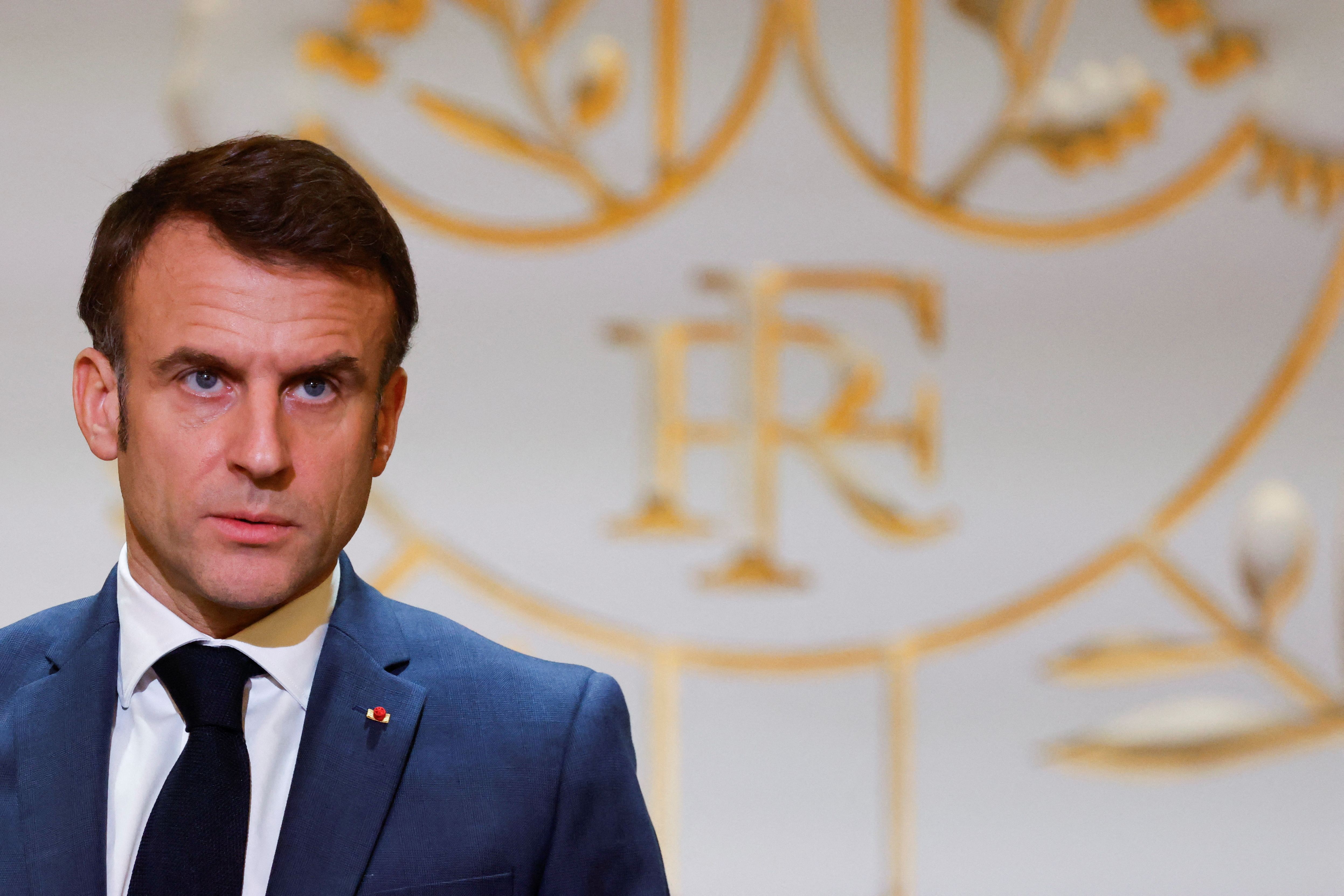French President Emmanuel Macron faced cracks within his ruling alliance on Wednesday after parliament passed a toughened immigration bill, spurring the resignation of the health minister amid tensions over the new legislation.
Quick Read
- French Immigration Bill Passed: The French parliament has passed a new immigration bill, showing a rightward shift in European politics. The bill aims to be tougher on immigration to curb the rise of the far-right.
- Macron’s Ruling Alliance Faces Strain: The bill’s passage has caused tension within President Emmanuel Macron’s ruling alliance, leading to Health Minister Aurelien Rousseau’s resignation.
- Bill’s Controversial Aspects: The legislation introduces migration quotas, makes it harder for immigrants’ children to become French, and delays access to welfare benefits for migrants.
- Resignation of Health Minister: Rousseau, a former Communist, resigned over the bill, stating he couldn’t defend it.
- Macron’s Governance Challenges: The bill highlights Macron’s difficulties in governing without a parliamentary majority.
- Europe’s Shift in Migration Policies: Other European countries and the EU are also adopting stricter migration and asylum policies.
- Political Ramifications: The bill’s approval may boost far-right parties and cause further divisions within Macron’s party, with some lawmakers expressing discomfort with its content.
- Government Response: Despite the controversy, Macron’s government defends the bill, stating it addresses citizens’ concerns. Macron is set to address the issue in a TV interview.
- Rebels within Macron’s Party: Some lawmakers within Macron’s party are rebelling against the bill, potentially weakening his parliamentary hold.
- Constitutional Review Requested: The government has asked the Constitutional Council to review the bill, which could lead to some measures being struck down if deemed unconstitutional.
- Immigration Statistics in France: As of 2022, immigrants constitute over 10% of France’s population, with a steady increase in numbers since 1946.
Reuters has the story:
France’s Macron faces cracks in his government over migration law
Newslooks- PARIS, (Reuters) –
French President Emmanuel Macron faced cracks within his ruling alliance on Wednesday after parliament passed a toughened immigration bill, spurring the resignation of the health minister amid tensions over the new legislation.
The bill illustrates a rightward shift in politics in much of Europe as governments try to curb the rise of the far-right by being tougher on immigration.
A compromise between the centrist president’s party and the conservatives, the new legislation, which was voted late on Tuesday, also showed the difficulties for Macron of governing without a parliamentary majority, which he lost last year.

Other governments across Europe have also opted for tougher migration policies, and the European Union itself reached an agreement on Wednesday to reshape its migration and asylum rules with the aim to limit the number of incoming migrants.
In the Netherlands, the far-right’s Geert Wilders topped elections last month after the previous government collapsed over immigration. In Britain, Prime Minister Rishi Sunak is facing deep divisions within his party over asylum policies.
In France, Health Minister Aurelien Rousseau resigned in protest over the immigration bill.
“It’s not possible for me to defend this text,” Rousseau, a former Communist, told Le Monde daily.
The tougher rules – including migration quotas, making it harder for immigrants’ children to become French citizens, and delaying migrants’ access to welfare benefits – were added to the bill to win the support of right-wing lawmakers for its passage.
The bill makes it easier to expel undocumented migrants, while watering down plans to loosen curbs over residency permits for workers in labour-deprived sectors.
Those conditions caused unease among Macron’s more left-leaning lawmakers, and dozens either abstained or gave it the thumbs-down in a vote on Tuesday.
Macron was set to defend the migration law in a TV interview in the evening.

Earlier in the day, Prime Minister Elisabeth Borne rejected talk of a crisis in Macron’s camp.
“We’ve done our job, we wanted a text with useful measures that our citizens were calling for,” she said, adding: “Now let’s move on.”
‘SHATTERED’
But Brittany lawmaker Jean-Charles Larsonneur told France Bleu radio he was leaving the centrist Horizons group, part of Macron’s alliance, saying the law breached “republican values.”
“I think the majority is unfortunately shattered,” he said.
Even the lower house of parliament’s president, Yaël Braun-Pivet, who voted in favour of the bill, told BFM TV she was “terribly bothered” by some of its content, in particular delaying access to welfare benefits for migrants with children.
The rebels in Macron’s party could further weaken his hold on parliament and complicate the rest of his five-year mandate.
However, the rebellion within the government seemed to be contained, as all the other left-wing ministers were present at a weekly cabinet meeting that Rousseau skipped.
Just six months before European Parliament elections in which immigration will be key, the adoption of the bill could also boost Marine Le Pen who called the rejigged bill “a great ideological victory” for her far-right party.

Macron won his two presidential mandates in 2017 and 2022 after voters rallied behind him to bar Le Pen from winning, and left-wing MPs said the rejigged migration bill was a betrayal of promises made to fend off right-wing ideas.
Government spokesman Olivier Veran said Macron would ask the Constitutional Council to review the adopted bill. This opens the door to the council striking down some of the tougher measures if it deems them unconstitutional.
“There are things in this law that we don’t like … but they are not shameful,” he said, stressing that the adopted bill was a result of a compromise for lack of a parliamentary majority. He added that foreigners were still welcome in France.
According to statistics office INSEE, the immigration share of France’s population has been growing steadily.
The number of immigrants – people living in France but born abroad – stood at 5% in 1946, reaching 7.4% in 1975 and 8.5% in 2010, to just over 10% of the population, or 2.5 million people, in 2022. About a third have become French.







